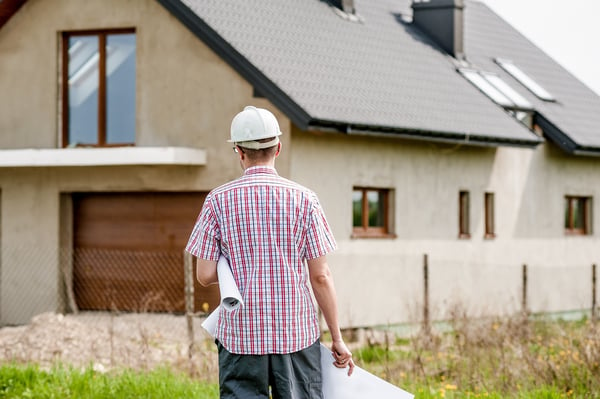
Our team has been working with people looking to build their custom dream home for 70 years. In that time, we’ve become familiar with the thought process of many homeowners before, during, and after their build.
Oftentimes, we see homeowners get hung up on some of the more unimportant aspects of building -- and these small details set the project back and incur additional expenses unnecessarily.
We’ve compiled some of the most common “traps” we see homeowners fall into when planning their project, in the hopes of aiding in keeping your project process smooth and efficient.
Don’t Get Tripped Up on These 4 Facets of Homebuilding
- That “must-have” Pinterest design
- Subfloor and sheathing stress
- Finding the “perfect” lot
- Keeping up with the Jones’
1. That “Must-Have” Pinterest Design:
There is nothing wrong with using a platform like Pinterest, Houzz, or even a good old fashioned home design magazine to aggregate design aspects you would like to see in your dream home. In fact, we even recommend using these tools to help figure out what you do and do not like when it comes to interior features.
However, time and time again we see homeowners become enamored with one specific style of cabinet, closet, or other feature that is not feasible for their project. Whether it be for architectural or budgetary reasons, depending on the rest of your design, there are some features that simply cannot be incorporated into the home.
It’s important to listen to your design and architecture team, and heed their recommendations about what is a good fit for your home. It is unwise to change your design (costing time and money) for one cabinet, and put yourself into unnecessary budgetary distress to do so.
2. Subfloor and Sheathing Stress
We are NOT saying that it is a good idea to completely disregard and not think about subfloor and sheathing materials. After all, we just wrote an article about the options we recommend, and why they’re so important!
However, we have seen homeowners spend considerable time deciding between materials and get sucked into the “materials wormhole.” While it is definitely important to remain informed and understand the difference between materials, it helps to lean on the experts on your team for their recommendations and experience.
With materials for your build, sometimes it can seem like the grass is always greener on the other side, and that all of the options are overwhelming. Trust your builder to give recommendations that are in-line with your goals to prevent unnecessary hang ups.
3. Finding the “Perfect” Lot
It’s easy to prioritize lots based on the obvious factors -- proximity to important places, a beautiful view, and overall aesthetic features of the site. While these features are important, there are a dozen more things to consider.
Make sure that your lot is able to:
- Be accessed by construction vehicles during build
- Have utility hook-ups
- Support drainage
- Support build with solid ground
If your lot is unable to support those things, additional costs can rack up quickly, and you’re more susceptible to factors that can impact build timeline. While your lot may be on the hillside and have a gorgeous view, if construction vehicles cannot access it and the ground is unable to support your house’s foundation -- your build is not viable.
While lot aesthetics are an important factor for choosing your lot, it cannot be the ONLY factor to get hung up on.
4. Keeping Up with the Jones’
It’s so important when thinking about the design of your home to consider how you and your family will be living in it -- not what you think you should have in your home based on trends, tradition, and other people’s homes.
For example, if you do not enjoy entertaining at your home, you probably don’t need to have a formal dining room that will collect dust and go unused. Instead, consider a room that supports your interests and hobbies that you and your family will love.
Square footage is another detail where homeowners feel pressure to keep up with a certain number. The focus should be placed on design, needs, and budget -- rather than checking an arbitrary square footage box.
It’s easy to get caught up with the latest trends, and forget what really matters. Above all else, the most important factors when building a home are those that contribute logistically and creatively to crafting a home you’ll love for years to come.
Stay on Track
Partner with an experienced home building professional who can help you stay on track with your project every step of the way and make decisions you can feel confident in.
For more information on what IS important when home building, check out our Custom Home Building guide.


